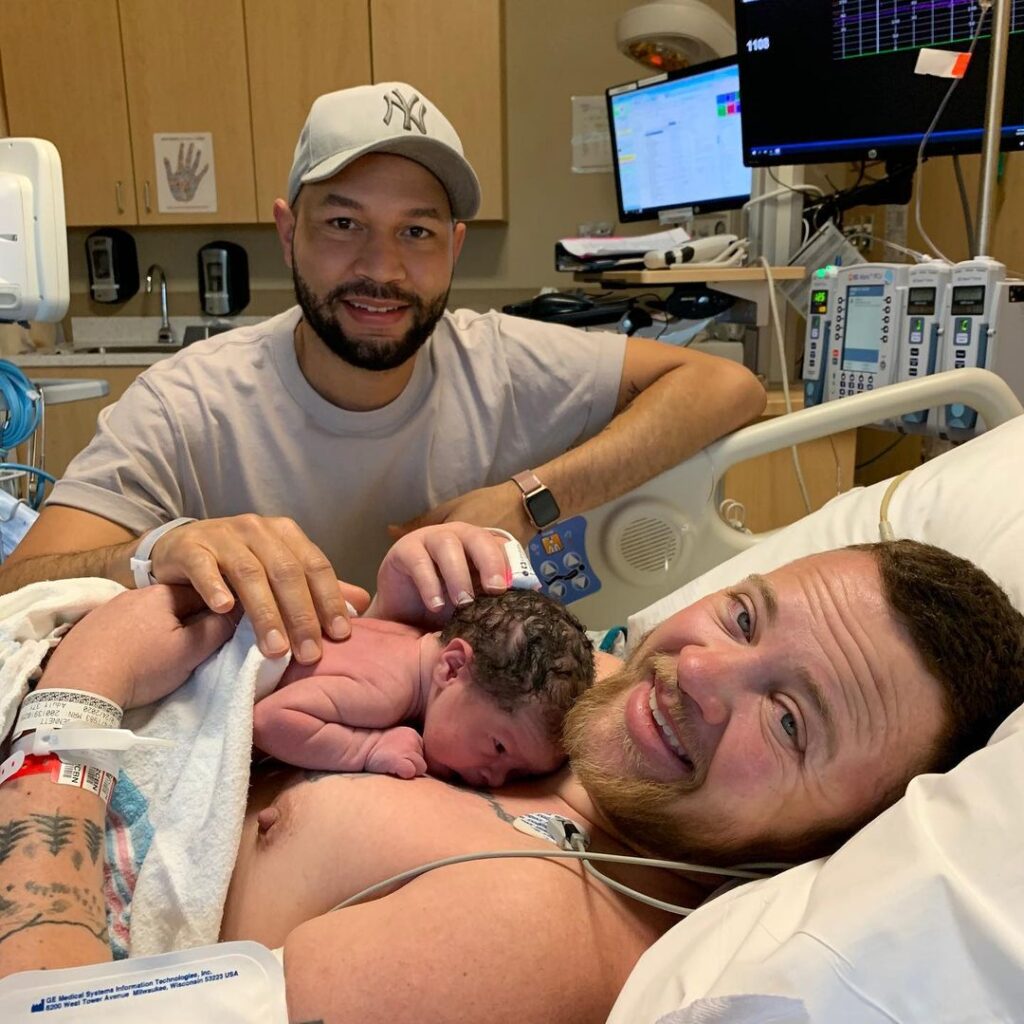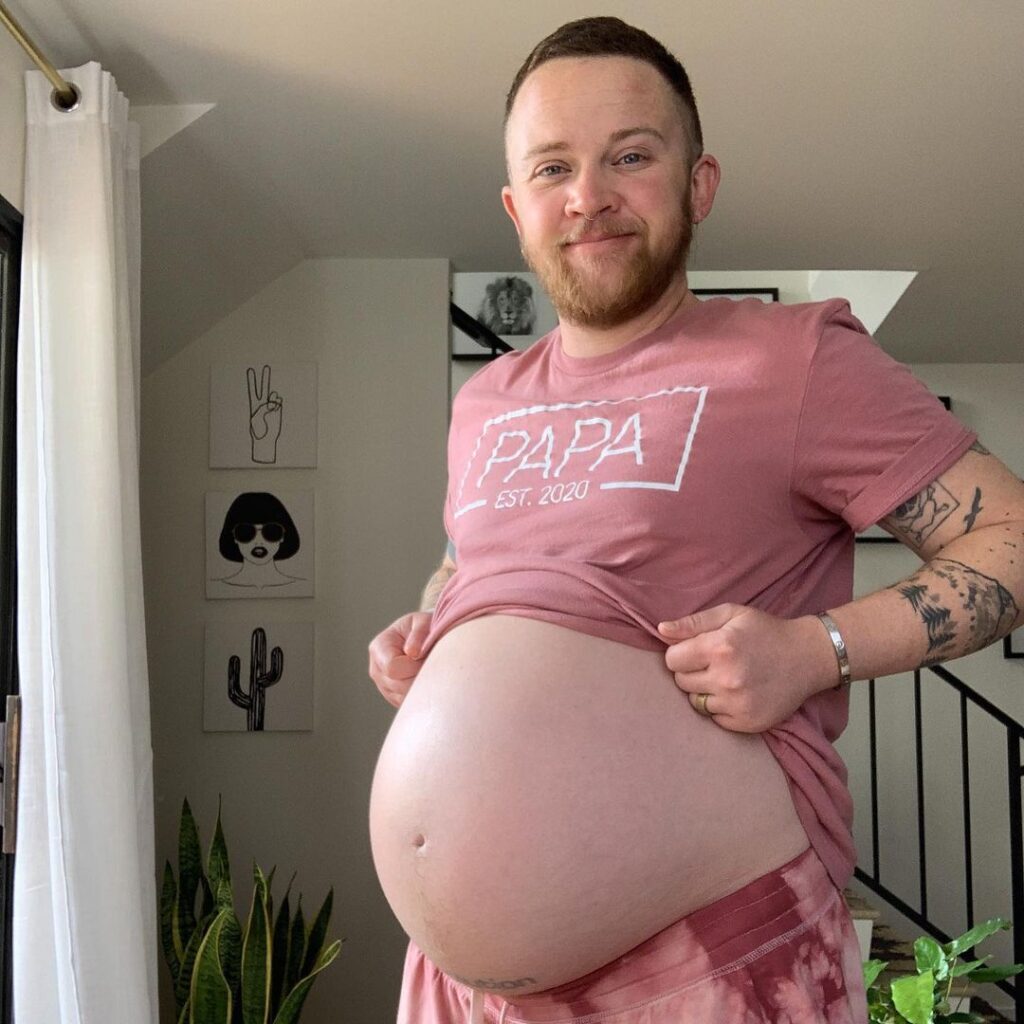After Having His Baby, This Trans Guy Complained About Nurse Misgendered Him.
Los Angeles transgender Bennett Kaspar-Williams is one of the few who had children after transitioning. He complained when personnel at the hospital where he gave birth labelled him a “mother” because he identifies and has transitioned as a male.

Three years after deciding to transition, the 37-year-old began. He married Malik in 2019 after meeting him in 2017. If they wanted children, Bennett had to cease testosterone medication to bring back his ovaries. The couple tried to have children.
The couple conceived quickly after stopping the drugs. Hudson was c-sectioned. Bennett noted that removing his breasts didn’t cause body dysphoria in his lower half, so he maintained them that way.
He said he didn’t realise how much he desired breasts until he spent $5,000 to remove them. It felt liberating. I felt like I had to do it, but I never hated my breasts like other trans people.
He said, “But I never could have guessed what a relief it would be to find them gone. It relieved me greatly. Bottom half surgery is out for my transitioning, though. No body dysphoria there.”
“It wasn’t something I ever wanted to do until I discovered how to separate the function of my body from any notions of gender,” Bennett said of his reluctance to give birth.

“Once I thought of my body as a tool and not a collection of gendered preconceptions, I understood I could both be the person I wanted to and bring a child into the world.”
“No one can ever really know whether having children is possible until you try — being born with a uterus doesn’t make conceiving or carrying a certainty,” he persuaded.
“That’s why it’s so crucial that we stop defining “womanhood” in terms of “motherhood,” because it’s a false equivalency that all women can become mums, all mothers carry their children, or all individuals who carry children are mothers.”

“Nothing is universal.”
“We had only been trying a short while, so we expected the process to take longer than it did,” he said.
This was a week before we went into lockdown in March 2020, so my high spirits were immediately overtaken by fear about the pandemic and how to keep myself and my kid safe.
“The only thing that made me dysphoric about my pregnancy was the misgendering I experienced throughout medical care.”
Bennett said he had a flat chest, beard, and was commonly dubbed a mother. “The business of pregnancy—and yes, I say business because the entire system of pregnancy care in America is geared around selling this concept of “motherhood”—is so linked with gender that it was hard to escape being misgendered,” he said.
“Even with a thick beard, a flat chest, and a ‘male’ gender marker on all my documentation, people couldn’t help but call me ‘mum, mother,’ or ‘ma’am.’”
That made me dysphoric. “I think carrying a child, secluded due to the epidemic, and facing all the hospitals and appointments alone was the single toughest, bravest thing I’ve ever done.”
“Children are amazing beings that don’t experience the world with the same bias and preconceptions as adults.”
“To my son, there’s nothing more natural and normal than having a Dada and a Papa, and when he’s old enough, he will also come to know that his Dada carried him and took care of him so he could come into this world.”
“Children perceive love, patience, and commitment.”
“My son will accept that he came from me, just like he accepts all the other love and beauty around him—with open arms.”